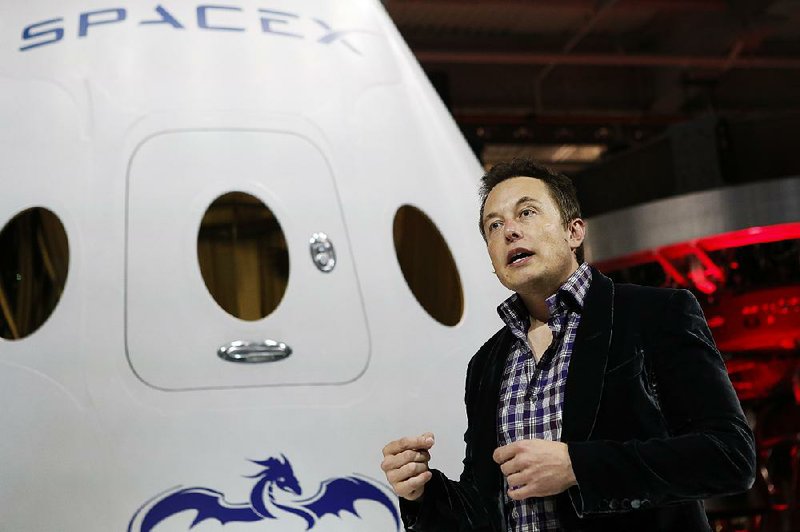SpaceX's billionaire founder Elon Musk called the Falcon 9 explosion its most perplexing failure in 14 years, deepening the mystery surrounding the loss of the satellite-bearing rocket on its launchpad last week.
U.S. investigators are looking into why the Falcon 9 rocket, developed by Musk's Space Exploration Technologies Corp., blew up on Sept. 1 before a scheduled test launch in Cape Canaveral, Fla. The explosion incinerated a satellite Facebook Inc. had planned to use to beam Internet access across parts of Africa, and set launches back across the world.
Musk, chief executive officer of SpaceX and Tesla Motors Inc., wrote in a tweet Friday that the rocket's engines weren't on at the time of the explosion. Musk also asked for any recordings of the event to be emailed to the Hawthorne, Calif.-based rocket-maker.
"Still working on the Falcon fireball investigation. Turning out to be the most difficult and complex failure we have ever had in 14 years," Musk tweeted on his verified Twitter account. "Important to note that this happened during a routine filling operation. Engines were not on and there was no apparent heat source."
The spacecraft had been filled with a common rocket fuel that explodes when mixed with liquid oxygen, and while there are many potential scenarios, a spark, static discharge, or metal on metal collision may have been enough to set off that mixture in case the oxygen tank ruptured, said Josh Barker of the National Space Center in Leicester, England. Explosions on the launchpad are more uncommon than accidents after a launch occurred, because with engines off staff have more control over the process, he said.
"SpaceX have been very reserved around information being given out. As a commercial company this is no doubt to manage their reputation as best they can," Barker said. "They will remain fairly tight-lipped until they know exactly what caused the issue. The request for more footage and assistance that Musk has called for shows that this investigation could still have a long way to go."
The accident led to SpaceX's second loss of a spacecraft in little more than a year, and occurred eight minutes before a scheduled test firing during a dress rehearsal. SpaceX, which was founded in 2002, said it began searching for the root cause of the accident immediately after the loss, reviewing about 3,000 channels of telemetry and video data covering 35 to 55 milliseconds. The Federal Aviation Administration, NASA, the U.S. Air Force and other industry experts are also involved in the investigation.
"Particularly trying to understand the quieter bang sound a few seconds before the fireball goes off. May come from rocket or something else," Musk tweeted. Asked on Twitter whether it was possible that a foreign object had struck the rocket, Musk replied: "We have not ruled that out."
Data showed the "anomaly" started around the upper stage liquid oxygen tank, the company said. The blast was a reminder of the peril inherent in space flight, which relies on controlled explosions to power payloads into orbit.
Prolonged investigations "could prove problematic for SpaceX as they rely on customers using their rockets to launch satellites," Barker of the National Space Center said. "Accidents such as these can put operations on hold for up to 12 months."
Business on 09/10/2016
